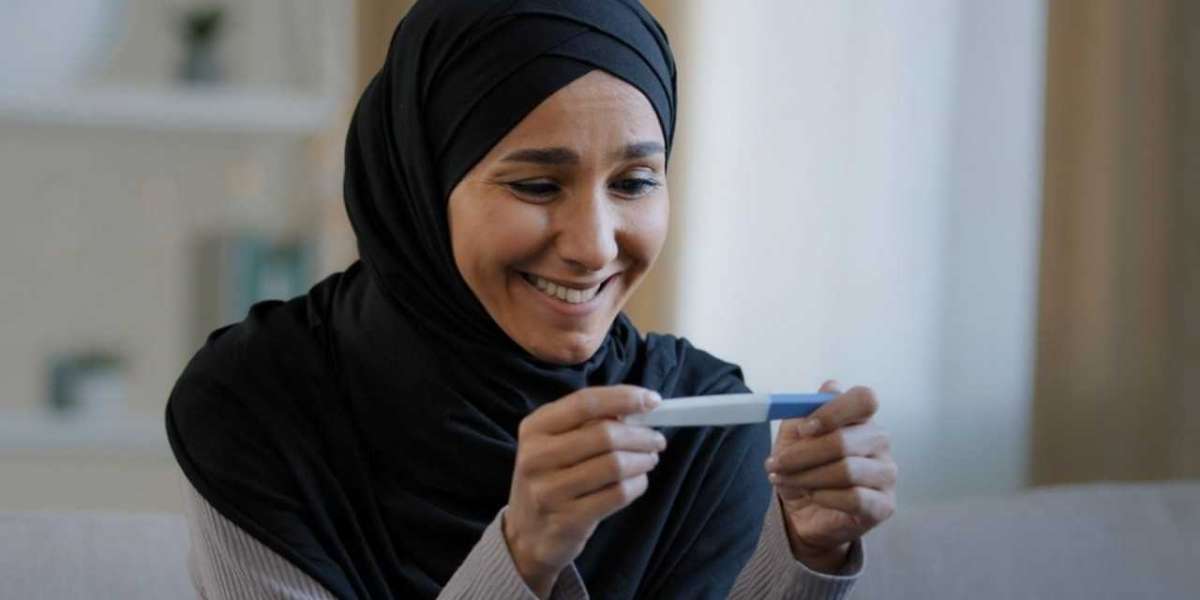Introduction
Fertility challenges can be overwhelming for couples trying to conceive. Fortunately, medical advancements provide effective assisted reproductive technologies (ART) to help families achieve their dream of parenthood. Among these, Intrauterine Insemination (IUI) and In Vitro Fertilization (IVF) are two widely utilized options.
Deciding which treatment is best depends on the underlying cause of infertility, the couple’s medical profile, financial considerations, and personal or religious beliefs. For couples in Lahore, accessing expert fertility services such as IVF in Pakistan Lahore ensures safe, high-quality care tailored to their needs.
This article provides a comprehensive comparison between IUI and IVF, exploring procedures, success rates, suitability, ethical and religious considerations, and expert guidance to help couples make informed decisions.
Understanding IUI and Its Benefits
Intrauterine Insemination (IUI) is a fertility procedure in which washed and concentrated sperm is placed directly into the uterus during ovulation. This minimally invasive technique increases the likelihood of fertilization by bypassing potential cervical or sperm motility issues.
IUI is often recommended for:
Mild male infertility, including low sperm motility or count
Unexplained infertility after initial evaluations
Ovulation disorders
Cervical factor infertility
Couples using donor sperm
Advantages of IUI include:
Minimally invasive and generally painless
Lower cost compared to IVF
Outpatient procedure with minimal recovery time
Can be combined with ovulation induction for improved success rates
While IUI is simpler and less expensive, it is generally suitable for couples with mild fertility issues and may require multiple cycles to achieve pregnancy.
Understanding IVF and Its Benefits
In Vitro Fertilization (IVF) is a more advanced assisted reproductive technology. The process involves fertilizing eggs with sperm in a laboratory environment and transferring viable embryos into the uterus.
IVF in Pakistan Lahore is widely available and recommended for couples facing:
Severe male infertility
Blocked or damaged fallopian tubes
Unexplained infertility after unsuccessful IUI cycles
Women with ovulation disorders or advanced maternal age
Genetic disorders requiring preimplantation genetic diagnosis (PGD)
Advantages of IVF include:
Higher success rates per cycle compared to IUI
Ability to select and screen embryos for genetic health
Suitable for a wide range of infertility issues
Can use donor eggs or sperm if necessary
IVF is more complex, requires hormonal stimulation, laboratory fertilization, and careful monitoring, but offers a higher chance of conception for couples with significant fertility challenges.
Comparing Success Rates
Success rates vary between IUI and IVF, influenced by age, health, and fertility issues:
IUI: Success rates per cycle range from 10% to 20%, depending on sperm quality, ovulation, and age. Multiple cycles may be required.
IVF: Success rates per cycle range from 35% to 50% for women under 35, decreasing with maternal age. IVF success is higher for couples with severe infertility.
Couples must weigh these success rates alongside procedure complexity, cost, and emotional impact when choosing the appropriate treatment.
Cost Considerations
Financial planning is a crucial factor in fertility treatment decisions:
IUI Cost: Generally lower, making it a first-line treatment for mild infertility cases. Costs include consultations, sperm preparation, and ovulation monitoring.
IVF Cost: Higher due to laboratory procedures, hormonal stimulation, egg retrieval, fertilization, embryo culture, and transfer. Specialized services like PGD add to the cost.
Understanding the financial implications helps couples plan effectively and set realistic expectations. Clinics providing transparent pricing, like those offering IVF in Pakistan Lahore, help patients avoid unexpected expenses.
Duration and Procedure Complexity
IUI:
Simple, outpatient procedure
Minimal medications required, often limited to ovulation induction
Short recovery time, usually resuming normal activities the same day
IVF:
Complex, multi-step procedure
Requires hormonal stimulation, egg retrieval, laboratory fertilization, and embryo transfer
Requires careful monitoring and post-procedure care
Couples should consider their willingness and ability to undergo more intensive procedures when comparing IUI and IVF.
Eligibility Criteria
IUI is suitable for:
Couples with mild male factor infertility
Unexplained infertility after standard tests
Women with healthy fallopian tubes
Couples seeking less invasive and cost-effective options
IVF is suitable for:
Severe male infertility or low sperm count
Blocked or damaged fallopian tubes
Advanced maternal age
Previous unsuccessful IUI cycles
Couples requiring genetic screening for inherited conditions
A fertility specialist can evaluate medical history, perform diagnostic tests, and recommend the most appropriate treatment based on individual circumstances.
Religious and Ethical Considerations
In Islamic countries like Pakistan, couples often consider whether assisted reproductive technologies align with religious beliefs. Many question is IVF halal in Islam Lahore, particularly regarding the use of donor eggs or sperm.
Key considerations include:
IVF using the couple’s own eggs and sperm is generally permissible under Islamic law.
Donor gametes or surrogacy may not be permissible in traditional interpretations.
Religious counseling alongside medical consultation helps couples make decisions aligned with both faith and medical guidance.
Consulting a qualified fertility clinic ensures that procedures comply with both medical standards and religious beliefs, offering peace of mind for patients.
Emotional and Psychological Impact
Fertility treatments, whether IUI or IVF, can be emotionally demanding:
Anxiety related to procedure success and timing
Stress from hormonal treatments or repeated cycles
Relationship pressures and emotional strain
Professional fertility clinics often provide counseling services to help couples navigate these challenges, ensuring emotional support throughout the treatment journey.
Choosing Between IUI and IVF
Deciding between IUI and IVF requires careful consideration of:
Severity and type of infertility
Age and reproductive health of the woman
Previous fertility treatment outcomes
Financial capacity and treatment costs
Religious or ethical considerations
Specialists offering IVF in Pakistan Lahore can provide personalized evaluations, helping couples select the treatment with the highest likelihood of success while respecting their values and circumstances.
Conclusion
Both IUI and IVF are effective fertility treatments, each suited to different medical conditions, financial situations, and personal preferences.Couples in Lahore should consult experienced fertility specialists to evaluate their unique circumstances. Understanding medical, financial, and religious considerations, including questions like is IVF halal in Islam Lahore, ensures informed, confident decision-making.By weighing all factors, patients can choose the most appropriate fertility treatment, improve their chances of conception, and embark on a fulfilling journey toward parenthood with professional guidance and support.








